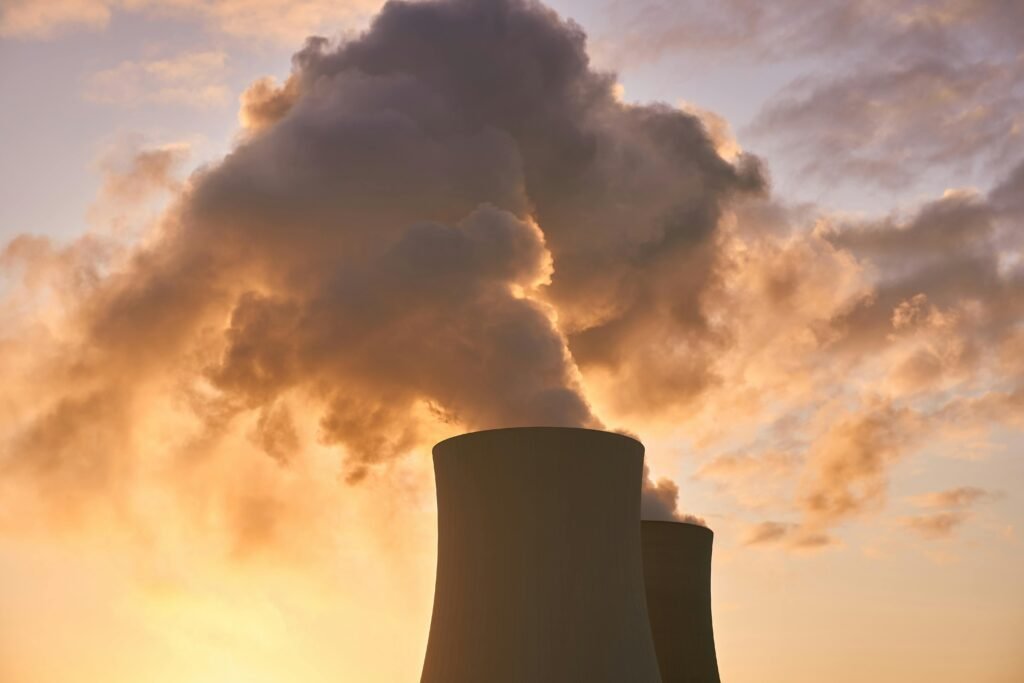Air quality is a critical issue for Cyprus, located at the crossroads of the Eastern Mediterranean, as it has a significant impact on public health, the environment and the island’s economy. Due to its geographical location, Cyprus faces unique air quality challenges, receiving pollutants of various kinds due to their diverse areas of origin. Dust particles from the Sahara Desert and Middle Eastern regions, pollution from urban/industrial areas from North Africa, Eastern and Central Europe, as well as smoke from fires in neighbouring regions (e.g., Turkey), but also from local emissions from traffic and industrial activity. Understanding and improving air quality is essential to ensure a healthy population, sustainable development, and economic growth.
Health Impacts of Poor Air Quality in Cyprus
Air pollution poses significant health risks, particularly during Saharan dust events and periods of high urban pollution.
- Short-term Effects:
During Saharan dust storms, the concentration of particulate matter (PM10 and PM2.5) often exceeds safe levels. This can lead to irritation of the eyes, nose, and throat, as well as respiratory problems like coughing and difficulty breathing. Sensitive groups, such as children, the elderly, and people with asthma, are especially affected. - Long-term Effects:
Continuous exposure to air pollution can cause chronic respiratory diseases, such as bronchitis and asthma, and increase the risk of cardiovascular diseases. Studies have shown that long-term exposure to fine particulate matter can lead to decreased lung function and even premature death.
Environmental Challenges in Cyprus
Cyprus’ air quality is influenced by both natural and human factors, making it a unique case within Europe.
- Desert Dust:
Cyprus frequently experiences dust storms, particularly in the spring. These natural events raise particulate matter levels, affecting visibility, soil quality, and ecosystems. Dust deposition can also harm agricultural productivity by altering soil chemistry. - Urban and Traffic Pollution:
Rapid urbanization and a high reliance on private vehicles contribute to localized air quality issues. Cities like Nicosia and Limassol often experience elevated levels of nitrogen dioxide (NO₂) and carbon monoxide (CO), primarily from vehicle emissions and construction activities. - Ecosystem Damage:
Air pollution, including ozone and sulfur dioxide, can damage crops, forests, and natural habitats. Acid deposition from pollutants can alter soil and water quality, threatening biodiversity in Cyprus.
Economic Implications of Air Pollution
Poor air quality has financial consequences for Cyprus, affecting healthcare costs, productivity, and key sectors like tourism.
- Healthcare Costs:
Respiratory and cardiovascular diseases linked to air pollution lead to higher medical expenses and strain the healthcare system. Individuals also face lost productivity due to illness caused by exposure to polluted air. - Tourism:
Cyprus is a popular tourist destination, known for its pristine beaches and natural beauty. However, frequent Saharan dust events and urban pollution can deter visitors, affecting the tourism industry, a cornerstone of the Cypriot economy.
What is Being Done to Improve Air Quality in Cyprus?
Efforts are underway to monitor, manage, and improve air quality in Cyprus:
- Monitoring and Forecasting:
he Cyprus Department of Labour Inspection operates air quality monitoring stations across the island, providing real-time data on pollutant levels. Advanced tools like the Copernicus Atmosphere Monitoring Service (CAMS) help forecast air pollution and assess its impact, including predicting Saharan dust events. - Government Policies:
Cyprus complies with EU air quality standards and is working to reduce emissions through investments in renewable energy, stricter industrial regulations, and the promotion of sustainable transportation.
How You Can Help Improve Air Quality
Improving air quality isn’t just the government’s responsibility; individuals and communities can also contribute:
- What You Can Do:
- Reduce car use by carpooling, walking, or using public transport.
- Limit outdoor activities during high pollution or dust days.
- Support energy efficiency by using eco-friendly appliances and renewable energy.
- Community Efforts: Join campaigns and initiatives that promote cleaner technologies and advocate for stricter air quality regulations.

